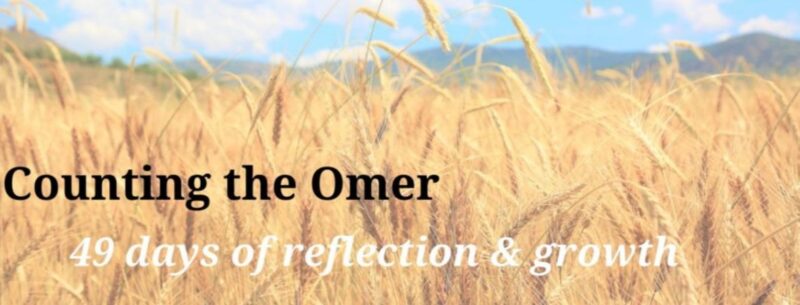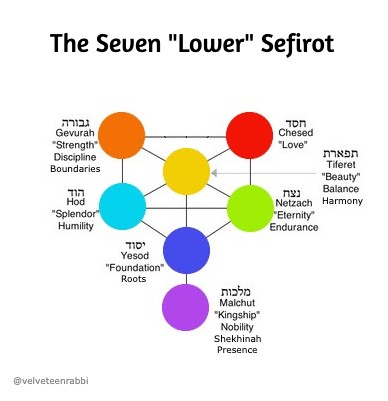This year the month of April opens with Pesach. I love all of the shining moments around the wheel of the Jewish year, but ever since I was a kid, Pesach has been one of my favorites. (And it still is.) Studies have shown that the Passover seder is the one Jewish ritual most commonly celebrated in this country — from Jews who aspire to experience Shabbat each week, to Jews who may only engage in one avowedly Jewish celebration per year, this one is always on the list.
It’s a pretty great choice. Storytelling, song, symbolic flavors and foods, time with friends and family — and maybe best of all, it’s when we celebrate, retell, and relive the story at the heart of our identity as a people. We were slaves to a Pharaoh in Egypt and God brought us out from there with a mighty hand and an outstretched arm. In every generation, we’re invited to see ourselves as if we ourselves had been liberated from that Narrow Place.
What does it mean to be free? What are freedom’s opportunities — and responsibilities? What does our Judaism mean to us, and what does Jewish peoplehood mean to us? In the coming year, what do we hope to do to bring ourselves, and everyone around us, one step closer to real freedom? I can’t think of many questions that feel more important, this year or any year.
This seven-week journey connects our festival of freedom with our festival of receiving Torah. This teaches us that freedom isn’t the end of our journey — it’s the beginning. Freedom by itself isn’t enough. It’s a prerequisite for the spiritual growth that comes afterwards, but it’s only the start of becoming who we’re meant to be.
Twice a year, in the spring and in the fall, there’s a seven-week corridor of time that our tradition invites us to dedicate to the inner work that fuels our ethical actions in the world. During the seven weeks after Passover in the spring, and the seven weeks leading up to the High Holidays as we approach fall, tradition invites us to look inward and focus on strengthening the qualities we understand ourselves to have in common with our Creator. The point of the inner work isn’t just navel-gazing, though. Its purpose is to help us align with our highest ideals so that our actions and choices aim toward integrity and justice.
Now we count 49 days between Pesach and Shavuot when we’ll receive Torah anew. Standing again (spiritually) at Sinai, we’ll recommit ourselves to the covenant of mitzvot, the 613 spiritual and ethical commandments at the heart of what it means to be a Jew. Our mystical tradition teaches that every Jewish soul that ever was or ever will be was mystically present at Sinai. Our tradition also teaches that Torah writ large — not just the Five Books, but the totality of all divinely-inspired Jewish wisdom throughout time — is our inheritance and our birthright. The Omer count is how we prepare ourselves to receive that inheritance more deeply each year.
One of my favorite ways to experience the Omer journey is to pay attention to the seven qualities we’re invited to cultivate during these weeks. These are seven qualities our tradition understands us to share with our Creator — divine qualities that are also human ones, since we are made “in the image and the likeness” of God. This means not that any one of us “looks like” the Holy One of Blessing but rather that we share our Creator’s capacity for love, justice, and more. These qualities are sometimes called the seven “lower” sefirot. (If you want to know more about that idea, here’s a link where you can learn more.)
Our mystics teach us to dedicate the first week of the Omer to hesed, abundant lovingkindness. The second week is for gevurah, boundaries and strength. The third week is for tiferet, balance and harmony. (If these qualities are ringing a bell, that might be because they’ve been the themes of our last three High Holiday seasons… and some of us may also remember studying these qualities week by week during the “reverse Omer,” the journey between Tisha b’Av and Rosh Hashanah.) Week four is for netzah, endurance. Those four qualities will accompany us through the first month of the Omer.
We’ll be in the week of gevurah when we commemorate Yom HaShoah, Holocaust Remembrance Day. It takes a certain kind of strength to remember tragedy and injustice and horror on that scale. To face the atrocity without either glossing over its realities, or losing hope in humanity’s capacity for goodness. Our volunteer choir has been working hard at preparing a program of beautiful, challenging, and powerful music for Yom HaShoah, which we haven’t commemorated together at CBI in quite a while. I hope you’ll join us for that afternoon program in which we’ll make space for grief and then allow it to give way to hope.
May our Pesach be a time of liberation and new beginnings — and may our Omer journey open our hearts to the qualities we need to cultivate this year in order to receive Torah anew.
Blessings to all,
— Rabbi Rachel







